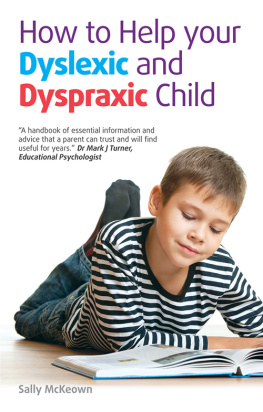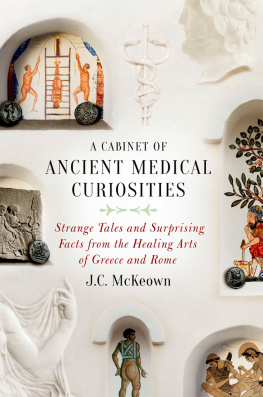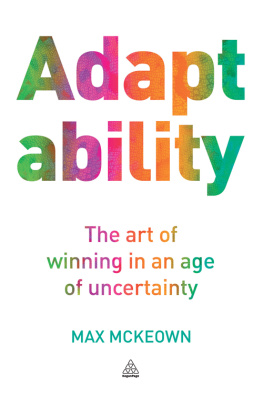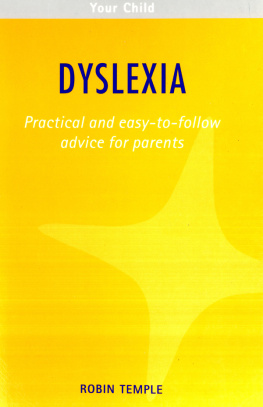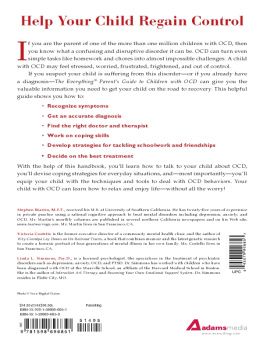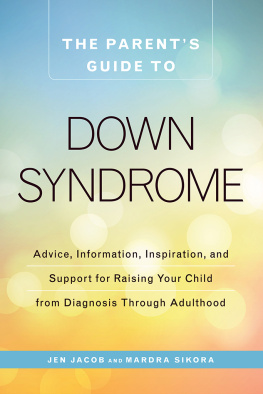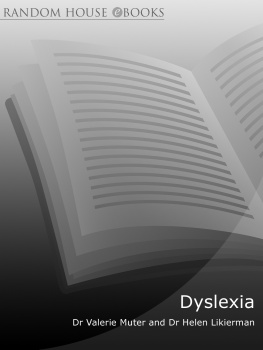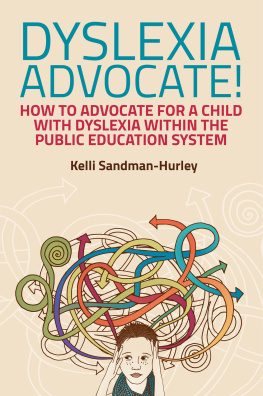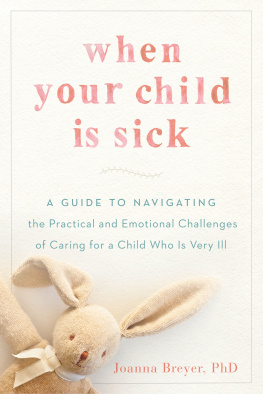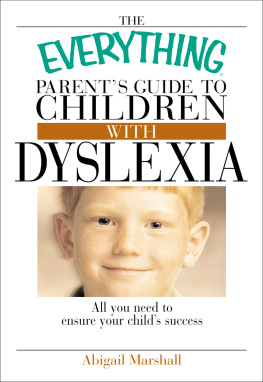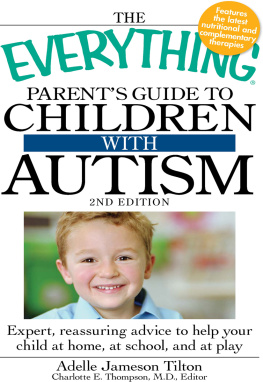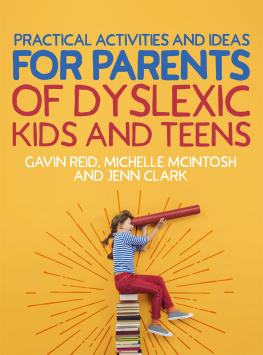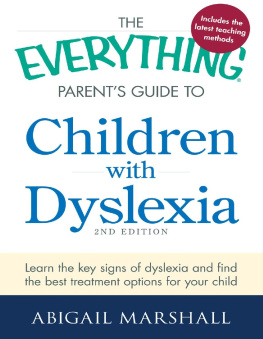How to Help Your Dyslexic and Dyspraxic Child
A practical guide for parents
Sally McKeown

How to Help Your Dyslexic and Dyspraxic Child
Sally McKeown
This epub edition is published in 2012 by Crimson Publishing
Crimson Publishing, Westminster House, Kew Road, Richmond, Surrey TW9 2ND
Crimson Publishing, 2012
Epub edition 2012 ISBN: 978-1-90828-128-9
The author has asserted her moral rights to be identified as the author of this work in accordance with the Copyrights, Designs and Patents Act 1988.
British Library cataloguing in Publication data
A catalogue record for this book is available from the British Library
All rights reserved under International and Pan-American Copyright Conventions. By payment of the required fees, you have been granted the non-exclusive, non-transferable right to access and read the text of this ebook on-screen. No part of this text may be reproduced, transmitted, downloaded, decompiled, reverse engineered, or stored in or introduced into any information storage and retrieval system, in any form or by any means whether electronic or mechanical, now known or hereinafter invented, without the express written permission of Crimson Publishing ebooks.
Epub file created by RefineCatch Ltd, Bungay
Contents
Pellereau
In a former life Sally McKeown was a teacher, working in schools and further education. For five years Sally ran a large basic skills unit working with young people who had dyslexia, dyspraxia and related conditions. She found that many of the conventional ways of teaching did not work for them. In later years she worked in the field of literacy and special needs for government agencies and also earned her living as a journalist.
In the course of Sallys working life she has interviewed many parents and children. This book contains some of their stories, which will inspire you and help you to help your child.
Many people contributed their stories, their time and their skills to bring this book to publication. I would like to thank Mick Archer, Beth Bishop, Louise Boulden, Sarah Cooper, Emma Haley, Clare Hargreaves, Jeff Hughes, Diane James, Joe McKeown, Amanda McLeod, Jane Mitchell, Barbara Morrison, Tina Morrison, Keith Murphy, George Nestor Allen, Tine Norling, Christine Toal, Rachel Womack and staff at Earlsdon Library. Particular thanks are due to Ben, Chloe, Jake, Matt, Rupert, Simon and Helen and former students of the Ben Unit in Coventry. Thanks also go to educational psychologist Dr Mark Turner for casting his expert eye over the book.
winner of TheApprentice 2011
Inventor Tom Pellereau secured a 250,000 business investment from Lord Sugar on The Apprentice in July 2011. Here he talks about the impact dyslexia has had on his life.
Dyslexia is tough but it has always been a massive positive for me. Everyone has unique skills; dyslexia means you become good at adapting and finding ways of solving problems. Your brain offers hundreds of different ways to solve the problem, which stands you in good stead.
My dyslexia has been a big influence in my life and success as an inventor. I seem to see things differently to others and create many solutions that may not have been thought of before. I find visualising simple. When I have an idea, I can picture it in my brain and spin it around. My experience of having dyslexia has also made me very tenacious and hard working. At school it seemed I had to work twice as hard just to keep up. This is something that has always stayed with me and helped hugely as Ive got older. As things havent always come easily, I know to never give up, as there is always another way.
When I was at school I struggled with English and languages, I remember a new English teacher brought in a class rule that any spelling mistake found in an essay had to be written out correctly 20 times. In my first essay I made over 100 mistakes, which made for a lot of extra homework! These experiences also made me comfortable with failure. This is crucial, as failure is a vital step on the route to success. From a young age I knew I was very bad at certain things, but I had a clear sense of the things I was good at too. In my case that meant I was always going to do science, engineering and design.
Many young people with dyslexia or dyspraxia get disheartened. I know that I was one of the lucky ones. My first school recognised my dyslexia early and provided extra lessons. I also had great support from my parents who would always say well done and keep going. I used to make things and take them apart when I was a child and my Mum and Granddad encouraged me in this. I knew they valued what I could do instead of always focusing on the things I was bad at. This helped me to become confident about my own abilities and I worked harder at the areas where I could succeed.
Computers with a spell checker were a life-saver for me. I was so lucky that computers came out when I was starting to write essays. The very first computer my Granddad gave me was [one of Lord Sugars] Amstrad 1512s. With hard work, focus, a lot of help from others and computers I gained three As at A level and a First Class Honours degree with a masters in Mechanical Engineering with Innovation and Design.
I won The Apprentice against a lot of competition from highly talented people who did not have dyslexia or similar difficulties. I believe my dyslexia helped me to develop products, find different solutions to tasks, deal with losing tasks and work with others.
With the ever increasing improving technologies that help spelling, reading, grammar, memory and other things many hurdles are being removed. In tomorrows world creativity and attitude will be the key to success. These are areas that dyslexics can excel at and I believe there has never been a better time to be dyslexic.
I really believe that there is no reason why people with dyslexia and dyspraxia cannot achieve. We may have to work harder and find our own way, but we will get there in the end! Anything is possible really, just remember there is always a way.
People pick up a book like this for many reasons. Maybe you have just found out your child has dyslexia or dyspraxia and want to find out as much as possible so you can reassure your child and help him to make satisfactory progress at school. Perhaps you have a date for an assessment by an educational psychologist and want to find out what is likely to happen. Maybe you just suspect that your child has a problem and want to be better informed, especially if you are going to talk to your doctor or to a teacher or find other sources of professional help.
Theres a lot of information about dyspraxia and dyslexia available to parents. Just look at the books on Amazon or in your local library. You have probably read a few of them yourself and might have checked out the websites of some of the specialist charities. However, lots of the information comes from a medical or educational perspective, looking at symptoms, causes and interventions. But what about the practical side? How do you help your child cope with the frustrations? How do dyspraxia and dyslexia affect family life? And what can you do about it?
How to Help Your Dyslexic and Dyspraxic Child covers everything you need to know: from the emotional impact on the family through to sources of help available to you. Above all, it has practical ideas for things you and your child can try. It features the experiences of six children and their parents and one adult with dyslexia. In the first chapter of this book, well introduce them and their stories, and youll also hear from them throughout the book as they share their experiences and give advice to families going through similar things.
Next page
